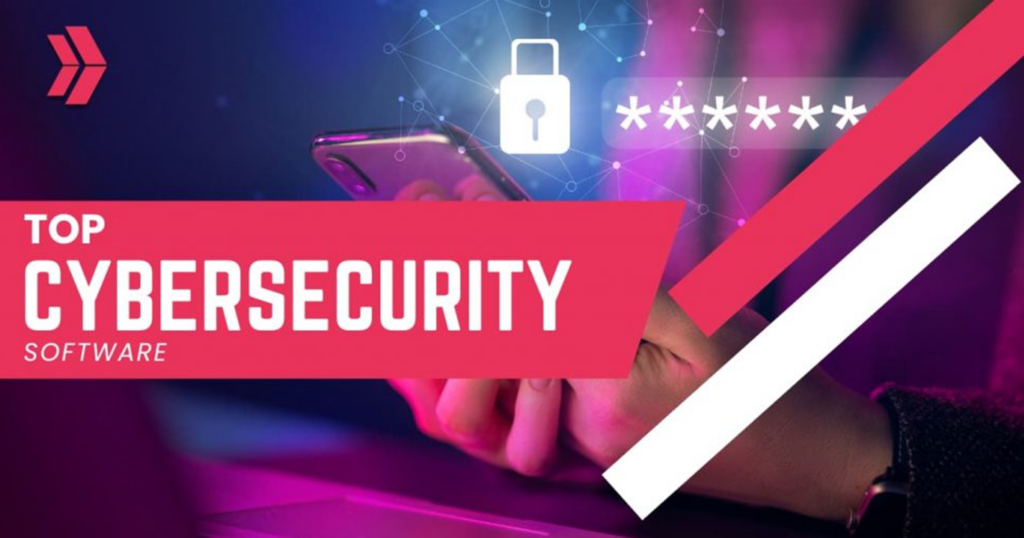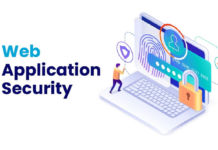Introduction to Cyber Security Software
Importance of Cyber Security Software in Today’s Landscape
In today’s digital age, cyber security software has become a critical component for protecting sensitive data, systems, and networks. With the rise in cyber security attacks and sophisticated threats like ransomware, phishing, and advanced persistent threats (APTs), having reliable software is more essential than ever. Businesses face continuous risks from cyber criminals who exploit vulnerabilities to gain unauthorized access, causing potential financial and reputational damage. Implementing robust cyber security software is the first step toward safeguarding valuable digital assets.
Cyber security software not only shields against common threats but also provides advanced detection and response capabilities to protect organizations from emerging risks. By maintaining security software, companies ensure a proactive stance against potential breaches, helping to avoid costly incidents and maintain trust with their customers.

Evolving Threats and the Need for Advanced Software
As the cyber threat landscape evolves, so does the need for more advanced and adaptive cyber security solutions. Traditional antivirus programs may no longer be enough to protect against complex threats. Modern cyber security risks include targeted attacks that require comprehensive solutions capable of detecting and mitigating these challenges in real time. Solutions that incorporate artificial intelligence and machine learning offer organizations the agility needed to keep up with attackers.
Organizations that stay updated with the latest cyber security software are better equipped to handle the sophistication of today’s threats. These tools provide real-time monitoring, automated responses, and actionable insights, allowing security teams to prevent and respond to incidents more effectively.
How Cyber Security Software Enhances Digital Defense
Cyber security software enhances digital defense by providing multiple layers of protection across endpoints, networks, and data environments. The best cyber security software includes features like firewall protection, intrusion detection systems, endpoint security, and real-time threat monitoring. These capabilities ensure that potential threats are identified early and mitigated before causing significant harm.
With continuous improvements and new features, cyber security software provides organizations with proactive measures to protect against attacks. From vulnerability scanning to incident response, the right software supports a comprehensive approach to digital security.
FireEye
Core Features and Capabilities
FireEye is renowned for its advanced threat detection capabilities and is widely used by enterprises worldwide. FireEye focuses on detecting and responding to cyber security threats in real time. The software utilizes threat intelligence and behavioral analysis to identify attacks and has a robust incident response capability. FireEye’s expertise in threat detection makes it ideal for businesses looking for advanced protection against sophisticated cyber threats.
Pros and Cons of Using FireEye
Pros:
- Advanced threat detection and response capabilities.
- Strong focus on incident response and threat intelligence.
- Ideal for large enterprises needing comprehensive security.
Cons:
- Higher cost may be prohibitive for small businesses.
- Complexity may require dedicated security expertise.
How FireEye Protects Against Advanced Threats
FireEye’s software is designed to protect against complex cyber threats that traditional solutions might miss. It offers in-depth analysis and immediate responses to breaches, allowing businesses to handle incidents swiftly. By using threat intelligence, FireEye ensures that its systems are continuously updated with the latest information on potential attack methods, enhancing resilience against advanced cyber security attacks.
Symantec Endpoint Protection
Key Features for Business Security
Symantec Endpoint Protection provides a comprehensive suite of tools for endpoint security, including antivirus, intrusion prevention, and device control features. Symantec’s focus on endpoints makes it a strong choice for organizations that need robust protection across various devices and user endpoints. This solution also includes advanced machine learning and behavioral analysis capabilities for detecting unknown threats.
Compatibility with Modern Business Environments
Symantec’s software integrates seamlessly with modern business environments, including cloud and hybrid systems. It offers protection across all platforms, from on-premises servers to cloud-based applications, ensuring consistent security. The software is also scalable, making it a good fit for growing businesses.
Pros and Cons of Symantec
Pros:
- Comprehensive endpoint security features.
- Advanced behavioral analysis and machine learning.
- Scalable for businesses of all sizes.
Cons:
- May consume more system resources on older devices.
- Complex setup process for smaller IT teams.
Palo Alto Networks
Unique Threat Detection Capabilities
Palo Alto Networks provides a suite of cyber security tools designed for enterprises with complex security needs. Known for its next-generation firewall technology, Palo Alto offers threat detection that goes beyond traditional signatures, analyzing behavior and patterns across networks. Its advanced detection techniques make it an effective choice for companies that require robust cyber security vulnerability management.
How Palo Alto Supports Real-Time Threat Intelligence
Palo Alto incorporates real-time threat intelligence into its security solutions, offering continuous updates to combat emerging threats. The company’s WildFire service, for instance, identifies unknown malware by analyzing it in a sandbox environment. This real-time intelligence allows organizations to stay ahead of potential threats.
Pros and Cons of Palo Alto Networks
Pros:
- Strong real-time threat intelligence and advanced detection.
- Comprehensive firewall and network security capabilities.
- Ideal for large enterprises with complex security needs.
Cons:
- High cost can be a barrier for smaller businesses.
- Requires skilled personnel for optimal use.
Cisco Security
Cisco’s Range of Security Tools
Cisco Security offers an array of tools focused on network protection, including firewalls, VPNs, and advanced malware protection. Cisco’s security tools are designed for both small businesses and large enterprises, offering flexibility and scalability. Cisco’s software suite integrates seamlessly with its networking hardware, making it a preferred choice for organizations with existing Cisco infrastructure.
How Cisco Enhances Network Security
Cisco’s software enhances network security by providing visibility and control over network traffic. With features like threat intelligence and automated responses, Cisco Security tools are ideal for identifying and mitigating network threats. These capabilities protect businesses from various network vulnerabilities.
Pros and Cons of Cisco Security
Pros:
- Excellent integration with Cisco hardware.
- Robust network visibility and control features.
- Suitable for organizations with existing Cisco infrastructure.
Cons:
- Premium pricing for some features.
- May require IT expertise for setup and management.
McAfee Total Protection
Comprehensive Protection for Businesses
McAfee Total Protection is a versatile solution offering endpoint, data, and web security features. McAfee’s suite provides advanced malware protection, ransomware defense, and intrusion detection, making it a well-rounded option for businesses seeking comprehensive security. McAfee’s centralized management console simplifies administration, allowing IT teams to manage security from a single platform.
Key Benefits and Drawbacks
Pros:
- User-friendly interface and centralized management.
- Strong malware and ransomware protection.
- Ideal for small and medium-sized businesses.
Cons:
- Performance may slow on older devices.
- Fewer advanced features compared to enterprise-level solutions.
McAfee’s Approach to Malware Defense
McAfee uses real-time threat detection, enabling it to defend against malware and ransomware attacks effectively. By continuously monitoring systems, McAfee provides proactive protection and automated responses, reducing the risk of data breaches.
Trend Micro
Features for Proactive Threat Defense
Trend Micro offers proactive threat defense with a focus on cloud and endpoint security. Its software includes machine learning capabilities, which improve threat detection by analyzing behavior and anomalies in real time. Trend Micro’s threat defense strategies are especially useful for identifying ransomware and phishing attempts.
How Trend Micro Manages Emerging Threats
Trend Micro adapts to emerging threats through its real-time updates and intelligence-driven features. By leveraging threat intelligence, the software can quickly identify and mitigate new vulnerabilities, ensuring that businesses remain protected against the latest threats.
Pros and Cons of Trend Micro Solutions
Pros:
- Strong emphasis on cloud security and proactive threat detection.
- Real-time updates and machine learning capabilities.
- Suitable for cloud-focused organizations.
Cons:
- Can be resource-intensive on smaller systems.
- Limited advanced features for large enterprises.
Bitdefender
Advanced Threat Detection and Prevention
Bitdefender provides advanced threat detection and prevention solutions tailored for small to medium-sized businesses. Bitdefender’s multi-layered protection includes antivirus, firewall, and vulnerability scanning capabilities. Its automated response features allow security teams to focus on critical tasks while ensuring that systems remain protected.
Bitdefender’s Key Features for Small and Medium Businesses
Bitdefender is known for its lightweight design, making it ideal for businesses with limited IT resources. The software offers easy setup and minimal impact on system performance, making it a practical choice for smaller businesses.
Pros and Cons of Bitdefender
Pros:
- Lightweight and user-friendly interface.
- Effective threat detection and automated response.
- Affordable for small and medium businesses.
Cons:
- Limited scalability for larger enterprises.
- May lack some advanced features found in enterprise software.
Kaspersky Total Security
Comprehensive Protection Features
Kaspersky Total Security offers comprehensive protection with features such as antivirus, firewall, VPN, and ransomware defense. Known for its reliability, Kaspersky provides robust security for both individuals and businesses, addressing a wide range of cyber security risks. It’s an all-in-one solution that provides excellent protection without compromising system performance.
How Kaspersky Supports Data and Network Security
Kaspersky’s solutions include data encryption and secure browsing, enhancing protection for sensitive data and transactions. These features make it an excellent choice for organizations prioritizing data security management and network security.
Pros and Cons of Kaspersky
Pros:
- Comprehensive security suite with numerous features.
- Excellent data protection and encryption capabilities.
- Suitable for various organizational needs.
Cons:
- Privacy concerns in certain regions.
- Premium price for advanced features.
Conclusion
Summary of Top Cyber Security Software Options
The eight cyber security software options listed here provide various features and capabilities to enhance an organization’s digital defense. From advanced threat detection with FireEye and Palo Alto to comprehensive endpoint security from Symantec and Bitdefender, each solution offers unique benefits to meet different needs. Businesses can use these insights to choose software that aligns with their security goals and operational requirements.
Choosing the Right Software for Your Needs
Selecting the right cyber security software depends on factors like business size, budget, and specific security requirements. Small businesses might prefer solutions like Bitdefender or Trend Micro, while larger enterprises may benefit from Palo Alto’s and FireEye’s advanced features. A thoughtful approach to software selection ensures a tailored security posture.
Strengthening Digital Defense with the Right Tools
In the age of escalating cyber threats, having the right cyber security software is essential for a robust defense. Each solution discussed here provides vital protection for today’s digital challenges, equipping businesses to stay resilient and secure.



